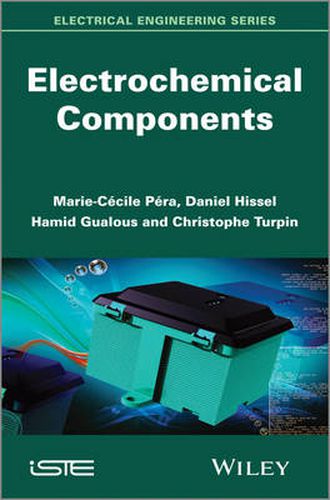Readings Newsletter
Become a Readings Member to make your shopping experience even easier.
Sign in or sign up for free!
You’re not far away from qualifying for FREE standard shipping within Australia
You’ve qualified for FREE standard shipping within Australia
The cart is loading…






There are a large number of potential technological solutions for electricity storage: electrochemical or electrostatic solutions, magnetic or mechanical solutions, or via another energy vector: for example hydrogen. This book focuses on the storage means commonly used in hybrid systems, whether they are destined to stationary or transport applications. The book is devoted to hydrogen electricity storage, which should be more and more used for storage for electrical networks or for the supply of isolated sites. Manufactured through water electrolysis and stored in ad-hoc reservoirs, Hydrogen has to be able to be re-transform into electricity on demand. This can be done through another energy converter: the fuel cell. The full combination electrolyzer/hydrogen storage/fuel cell can relate to a hydrogen battery. Such a system does not permit to reach high storage/destocking dynamics. Therefore, another solution has to supplement this one. Ultracapacitors are able to meet these constraints of quick response in absorption/supply of electrical power. If the storage systems previously mentioned (hydrogen batteries, ultracapacitors) all have potentially interesting characteristics, thereby justifying their use in hybrid electrical systems, they are still relatively costly nowadays. Thus, the book will also present the electrochemical cell, which still has a bright future ahead. Finally, based on the supplied elements, the book takes an interest in the electric hybridization of these storers with a view to increase even more the performances (of energy, lifespan, cost, etc.) of the new system thereby manufactured.
$9.00 standard shipping within Australia
FREE standard shipping within Australia for orders over $100.00
Express & International shipping calculated at checkout
There are a large number of potential technological solutions for electricity storage: electrochemical or electrostatic solutions, magnetic or mechanical solutions, or via another energy vector: for example hydrogen. This book focuses on the storage means commonly used in hybrid systems, whether they are destined to stationary or transport applications. The book is devoted to hydrogen electricity storage, which should be more and more used for storage for electrical networks or for the supply of isolated sites. Manufactured through water electrolysis and stored in ad-hoc reservoirs, Hydrogen has to be able to be re-transform into electricity on demand. This can be done through another energy converter: the fuel cell. The full combination electrolyzer/hydrogen storage/fuel cell can relate to a hydrogen battery. Such a system does not permit to reach high storage/destocking dynamics. Therefore, another solution has to supplement this one. Ultracapacitors are able to meet these constraints of quick response in absorption/supply of electrical power. If the storage systems previously mentioned (hydrogen batteries, ultracapacitors) all have potentially interesting characteristics, thereby justifying their use in hybrid electrical systems, they are still relatively costly nowadays. Thus, the book will also present the electrochemical cell, which still has a bright future ahead. Finally, based on the supplied elements, the book takes an interest in the electric hybridization of these storers with a view to increase even more the performances (of energy, lifespan, cost, etc.) of the new system thereby manufactured.